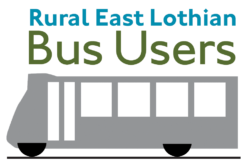Philip Immirzi is a part time consultant and helps Relbus campaign for better public transport. He maintains this and many other websites, with the aim of improving local democracy
Although some choice is undoubtedly better than none, is more better than less? Well it just depends, say psychologists, and certainly not when less equals nothing at all. If you live in a rural area, the bus may well be just a fond memory, part of the folklore/history along with the village pub, with maybe an overgrown bus shelter as the only surviving evidence.
Competition thrives on the notion of choice, but as there is no broader public obligation duty built into the running of a bus service since deregulation [1. except that once permitted you run them to schedule and safely] rural areas tend to lose out as they are uneconomic. Significant public subsidy is required and this potentially distorts the market further. But equally, if you are on a commuter route, chances are you are spoilt for choice. In fact such choice could be downright confusing, with out of date or unreadable timetables, too many operators, different liveries and competing /opaque fare and ticketing regimes.
Competition tends eventually to encourage consolidation, with larger companies taking over the small, whether or not they are profitable. But for a while consolidation can provide transient benefits, or so you would think. You’d expect larger operators to pass on their economies of scale and lower cost of borrowing (shareholders aside), and provide the better and cheaper services that economic theory implies. You don’t have to ask around too much or conduct a sophisticated consultation to find out that they don’t and that in certain areas they struggle to (or at least claim to) even make a profit. We heard yesterday that the Scottish Government was taking over Prestwick airport, which has been in decline for a few years now, yet somehow I am not expecting any takeover of the cinderella of modern public transport – ie the buses – any time soon.
So what is the case for better regulation of the buses? Iain Gray’s consultation ends this week and questions whether the public has benefited as widely as intended from wholesale deregulation. He says not and he posits that other models should be considered, based on the bundling of profitable and not so profitable routes to form a coherent network. Let’s take a look at another part of the public transport sector that is generally well regarded, and has increased patronage against a backdrop of ever rising fares. This sector runs on this same well-established market based mechanism, which allows the public service dimension to be better reflected, and which operators can run seemingly profitable services. Yes we are talking about the railways. In fact, the operators themselves believe that this model helps them to provide ‘better services and helps drive down costs’. Presumably this is by reducing wasteful competition and the security of longish franchises. There’s work to do on fare transparency, but you can probably see where this article is going.
So why can’t we have a bit of franchising action on the buses? A little less competition might mean a few less services on certain busy routes, but that may be no bad thing, psychologically, environmentally and spare a thought for the people who live on those busy corridors. Through franchising the parameters of the service could be better specified. A better integrated service with connections that meet trains and interchanges could become the norm. A more coherent network would also have measurable benefits, economically and socially, with certain disadvantaged groups gaining increased access to employment, training and health services. Investment by operators could be predicted better and proportionate, and perhaps more needs based (most people travel very locally so shorter routes and smaller buses might be justifiable), helping to achieve wider policy aims, such as substituting short car journeys, connecting new developments with their natural local centres (not all the roads lead to Edinburgh).
And while we are at it, a service that is responsive to users probably ought to have greater local democratic control. The tendency of current consultative mechanisms is to be told that something is happening and you’ll be consulted in due course. Representative groups find out about things on the grape vine and by the time proposals are consulted on, it is already too late to influence them – for the devil is in the detail. A bit more partnership and collaboration doesn’t need legislation, but if the current setup is dysfunctional, then maybe this should be discussed too.
Barry Hutton gave a talk to his Relbus colleagues at the recent AGM. He asked a simple question – what is public transport for? If public transport has merely social functions, and I think he meant the buses, then it is a service that is used as a last resort – to help the needy, the disadvantaged and the old – who are not always the former. A worthwhile objective he argued, as a pensioner himself, but that a more persuasive objective is to optimise transport systems, so that there are wider network benefits mainly accruing from efficiency. Sounds like prelude music for unbridled free market capitalists, but wait for it. He then cited the highly subsidised public interventions in London and further afield, which bring with them huge economic benefits, justifying the public subsidy many times over. Poor public transport infrastructure is cited as a barrier in East Lothian’s draft economic development strategy. It’s the economy, stupid.
So let us end with a little what if scenario – what if 90% of Edinburgh workers commuted by public transport rather than by car, as City workers do in London, what would our public transport infrastructure look like?
We sent a copy of the RELBUS response to Iain Gray’s Bill Consultation in just this morning.
